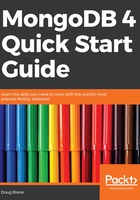
Installing on Debian or Ubuntu Linux
Debian Linux (https://www.debian.org/), self-described as the universal operating system, is a free open-source project that uses a fork of the Linux kernel, and draws heavily upon GNU (http://www.gnu.org/software/software.html, for example, GNU Not Unix) software. Ubuntu Linux (https://www.ubuntu.com/) is produced by the Canonical Group Ltd based in South Africa, and is based upon Debian. For the purposes of this book, we will focus on Ubuntu version 18.04, code-named Bionic Beaver, released in April 2018, a designated LTS (Long Term Support) version.
The preferred way to install any given software on Ubuntu is to use a Debian package. Such packages have the extension *.deb and include a script that tells the package management program where to place the pre-compiled binary files as they are extracted. Popular package management programs include synaptic (http://www.nongnu.org/synaptic/, graphical interface, resolves dependencies, and does a lot of "housekeeping"), aptitude (https://help.ubuntu.com/lts/serverguide/aptitude.html, like synaptic but has a textual, command-line menu), and apt-* (that is apt-get (https://linux.die.net/man/8/apt-get), apt-key so on: very fast, command-line only). For the purposes of this section we will use apt-get.
The MongoDB packages available for Ubuntu/Debian include the following:

In addition, a composite package, mongodb-org, which contains all four of these packages, is provided.